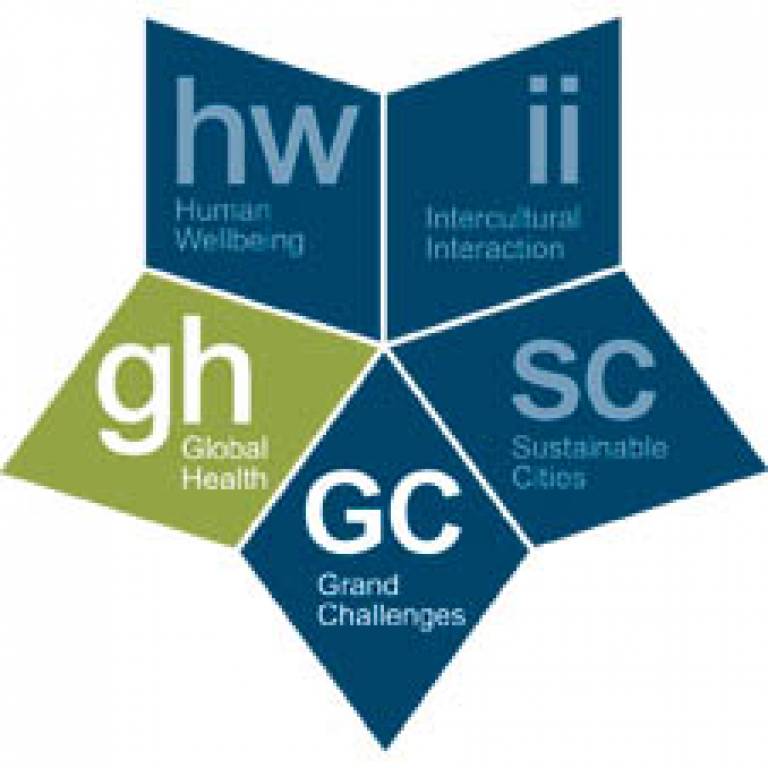The global burden of mental health disorders
28 May 2010
Links:
 ucl.ac.uk/global-health/" target="_self">UCL Institute for Global Health
ucl.ac.uk/global-health/" target="_self">UCL Institute for Global Health
Sixty-six percent of people with dementia live in low- and middle-income countries, but only ten percent of population-based research is carried out in these areas, according to Professor Steve Iliffe (UCL Primary Care & Population Health).
Professor Iliffe was emphasising the links between dementia and depression at a UCL Institute for Global Health symposium focusing on mental health and primary care in the developing world, held at UCL on 19 May.
Michael King (UCL Mental Health Sciences), Professor of Primary Care Psychiatry, highlighted that low-income countries spend proportionately less on mental health care. For example, 12% of the UK's health budget is spent on mental health, but in many developing countries less than 1% of the health budget funds mental health care. He also noted that there are many different systems of mental health care globally, and countries such as Brazil and Chile are developing mental health systems in primary care, with marked effects.
Irwin Nazareth (UCL Primary Care & Population Health), Professor of Primary Care & Population Sciences opened the symposium with an overview of primary care - the work of health professionals who act as a first point of consultation for patients. He outlined the history of primary care, reviewing the success of Alma Ata (the first international declaration underlining the importance of primary health care) and the Millennium Development Goals, before describing how primary care applied to mental health is implemented around the world and the range of barriers faced globally,.
He cited examples of research UCL is conducting in Chile, India and South Africa, such as the predictD study. Led by Professors Michael King and Irwin Nazareth, researchers involved in this project developed an online tool to predict the risk of depression, for use by family doctors and local clinics, which was evaluated in Chile and six European countries.
UCL is also leading research on applying the General Practitioner Research Framework - a network of practices involved in clinical trials, epidemiology, and health services research - to low-income settings such as Goa (India), and Umtata and Eastern Cape (South Africa).
Professor Sir David Goldberg (King's College London), currently leading the World Health Organisation's reclassification of mental health disorders in Primary Care, presented the background to this reclassification and the lessons learned to ensure this document is useful globally.
Panellist Dr Kate Walters (UCL Primary Care & Population Health) raised the issue of classification, querying whether the vast differences in mental health burden between countries such as Nigeria and the USA are correct.
Dr Sushrut Jadhav (UCL Mental Health Sciences) focused on culture and context of medicine in low-income countries, and questioned how to avoid medicalising social suffering.
Dr Alisher Latypov (Wellcome Trust Centre for the History of Medicine at UCL) highlighted that biomedical professionals aren't always the first point of call, and that traditional healers, spiritual healers and other indigenous practitioners need to be incorporated into systems.
A lively debate with the audience raised a wide range of issues including:
· differing views on wellbeing and stigma
· the medical rigour of diagnosis
· whether individual countries should be allowed to decide which conditions should be included in the classification of mental health disorders
· training of medical students in mental health and primary care
· the relationship between community-based care and primary care
· the role of families in care, and
· links between mental health, poverty and accessing treatment.
UCL context
The cross-fertilisation and application of UCL expertise is being coordinated through the UCL Institute for Global Health. It is developing an institution-wide agenda leading to strategies, programmes, research and teaching to bring our combined expertise to bear on the Grand Challenge of Global Health.
 Close
Close

